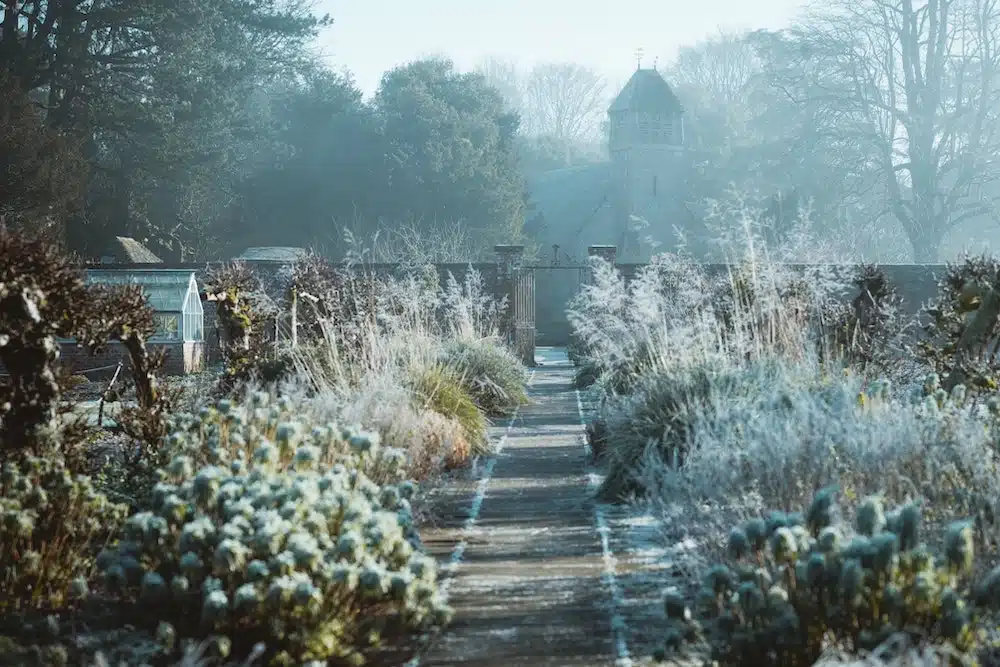When it comes to growing your winter garden in South Africa, TLC is key! For your organic garden to thrive, you need to support the health of the whole system with time, love, care and patience.
Is anyone else starting to feel a little chill in the air? Autumn is officially here, winter is coming, and it’s time to make sure that your garden is prepared with winter gardening techniques and frost-hardy plants for the South African climate. Most areas in South Africa are fortunate to have clear and sunny winter days, so there’s no need to put away your green thumbs just because the temperatures have dropped.
In this article in our ‘Ultimate Guide to Growing in Your Garden’ series, we’re going to help you with some top tips for winter garden care.
If you missed the previous Parts, we suggest catching up now:
Read Part 1: Choosing the right location
Read Part 2: Prepping the soil
Read Part 3: Choosing what to plant
Read Part 4: Organic pest control
Winter garden care in South Africa
Make sure you mulch
Throughout the year, the secret to keeping vegetables happy and flourishing is mulching. It keeps the roots cool and moist in summer; warm in winter.
Cover your beds with a layer of mulch to protect your plants from harsh winter conditions. Spreading mulch in your garden helps protect the soil from damage caused by wind, cold, frost or heavy rains.
Organic mulch options include:
- Compost
- Grass cuttings
- Dry leaves
- Bark chips
- Newspaper
- Kraal manure
- Straw
| TOP TIP If leaves and branches of shrubs have been damaged by frost, don’t cut them off—they protect the plants from further damage. Rather leave them on the plant until all danger of frost has passed. |
Watering in winter gardens
Watering vegetables in winter is always tricky, but we suggest watering the garden during the warmest hours of the day. In winter, roots absorb moisture slower than in summer, so the warmth helps keep it flowing through the plant system.
Be sure to focus your watering on the soil rather than the leaves, as water on leaves can freeze in extreme cold and cause damage to the plant.
Don’t leave your sprinklers or any other irrigation systems on overnight because the water can freeze and damage both your pipes and your plants.
Raised beds
Planting on raised beds is a good idea for winter gardening since their soil temperature is higher. If your soil is mulched thickly in winter, the temperature inside a raised bed will be a few degrees warmer than garden beds. This will help keep your winter crops growing well through the coldest months.
Other benefits of raised beds include:
- More effective use of space
- No soil compaction from walking over the beds
- Veggies receive more sun and air circulation
- Long-rooted plants do especially well in raised beds because there are no obstructions to hinder their development
- You can contain invasive plants and herbs by planting them in raised beds
Seek the sun
Ideally, most plants in your winter garden should receive six hours of sun per day. Be sure to place your plants in a suitable spot where they can get as much sun as possible during the day.
Plant larger growing varieties of vegetables on the south side of your garden. This means that they will still benefit from plenty of winter sunshine, but will not overshadow smaller growing crops.
Harvest carefully
For the average family organic garden, it’s best to plant smaller quantities of vegetables at regular intervals rather than planting too much all at once. This successive sowing and planting ensures a more continuous harvest of crops, rather than a large quantity all at once that you may not be able to finish.
Winter vegetables are often slow to produce, so be sure to adjust your harvest time and quantity to ensure optimal growth.
- Allow enough time to mature
- Harvest just before the frost if possible
- Preferably harvest in drier weather to avoid sticky soils
- Do not damage the vegetables left in the ground
Check your vegetables regularly so that they don’t over-ripen before you have a chance to pick them.
What vegetables to plant in winter in South Africa?
With the right amount of nutrients, there are plenty of vegetables that do well in cooler autumn and winter conditions in South Africa.
Vegetables to plant in winter
- Cauliflower
- Carrots
- Broad beans
- Kale
- Microgreens
- Onions
- Radishes
- Snap peas
- Green onions
- Garlic
- Spring onions
What to harvest in winter
Plant in autumn to reap the rewards in your winter garden. The following vegetables are in season in winter:
- Butternut
- Beetroot
- Broccoli
- Cabbage
- Cauliflower
- Spinach
Protection from cold and frost
If you live in a frost-prone area, avoid planting anything that’s not frost hardy. You can also take steps to protect your plants and prevent damage from frosty conditions.
How does frost affect plants?
Frost damage occurs in plants when the cell sap freezes. The sap then expands and ruptures the cell walls, destroying the plant in the process. Frost-tender plants generally can’t survive frost; half-hardy plants can tolerate mild frost at temperatures of 0°C to -3°C. Some plants can tolerate temperatures well below freezing, and are commonly known as frost-hardy.
How do I protect my plants from frost in South Africa?
You can protect susceptible plants in your winter garden by:
- Using lightweight horticultural fleece to cover plants overnight
- Creating cardboard ‘tents’ over plants
- Planting or building windbreaks such as mini fences, layer bricks or shade cloth
- Covering seedlings with plastic bottles and yoghurt tubs
Frost-hardy plants in South Africa
The following winter garden plants are generally frost hardy:
- Spinach
- Garlic
- Leeks
- Broccolli
- Kale
- Cabbage
- Brussels sprouts
- Cauliflower
- Parsley and celery
| TOP TIP: Did you know? Vegetables harvested in colder weather will be sweeter and crispier to eat. |
Product option for winter gardening in South Africa
An example of the type of product to help with your winter gardening is Organic for Africa’s Pine Bark Mulch. As mentioned above, mulch can come in various forms and has many benefits to the growth of your plants by protecting and enhancing your soil quality.
Don’t get discouraged about winter gardening!
At the end of the day, you’ll need to accept that some veggies will do well; others may fail, even if you follow instructions to a “T”. Nevertheless, you’ll have a chance to learn from your mistakes along the way and become a better veggie gardener. Don’t be afraid to try things, change up your methods, vary planting techniques and try different plant partnering combinations.
Season by season, you will soon learn which varieties do best in your garden and how much to sow for your family’s needs. We hope you have delicious homegrown, organic produce to look forward to.
Thanks for following along with our “Ultimate Guide to Growing in Your Garden”, and we hope you’ve enjoyed creating your own organic garden. Look out for an article on tips for spring gardening in a few months’ time!
Want to learn more about sustainable farming? Get in touch with the Zylem team. Contact us on 033 347 2893 or send us an enquiry.

